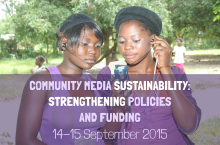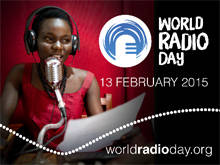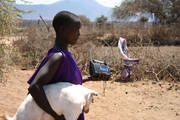Community Media

© Rukmin Wijemanne - Community radio in Pemba, Zanzibar.
Community media are characterized by their accountability to the communities they serve. They emerge as a result of popular movements that strive to attain an important space in citizen participation and demand the right to own and operate free from political or commercial interference.
As an alternative medium to public and commercial media, community media engage in a social agenda amplifying views and concerns about context specific issues and facilitating public platforms for debate and discussion. They are independent, community owned and run media.
Community radio in particular has grown in numbers worldwide delivering an outreach mechanism for increased access to education, self-expression and communication among rural and hard to reach grassroots populations. The management, programming schedule and content of community radio is driven by the involvement and participation of community members and community decision-making bodies that demonstrate a sense of ownership about their own development agenda and become self-empowered to publicly express opinion, debate issues, carry out dialogue, promote culture, community history and language.
UNESCO recognizes that the presence of community radio is a sign of media pluralism, diversity of content, and the representation of a society’s different groups and interests. Community radio encourage open dialogue, local transparency and a voice to the voiceless.
Community media is one that is operated:
- in the community,
- for the community,
- about the community and
- by the community.
The community can be territorial or geographical - a township, village, district or island. It can also be a group of people with common interests, who are not necessarily living in one defined territory.
Consequently, community radio can be managed or controlled by one group, by combined groups, or of people such as women, children, farmers, fisher folk, ethnic groups, or senior citizens.
What distinguishes community radio from other media is the high level of people’s participation, both in management and program production aspects. Furthermore, individual community members and local institutions are the principal sources of support for its operation.
News
-
13.11.15
Inception workshop held for community radio stations under UNESCO/SIDA project in Uganda
-
27.10.15
Rwanda community radio stations supported by SIDA/UNESCO project
-
02.10.15
-
24.09.15
Community radio stations in Kenya to exercise more accountability in the interest of the public




